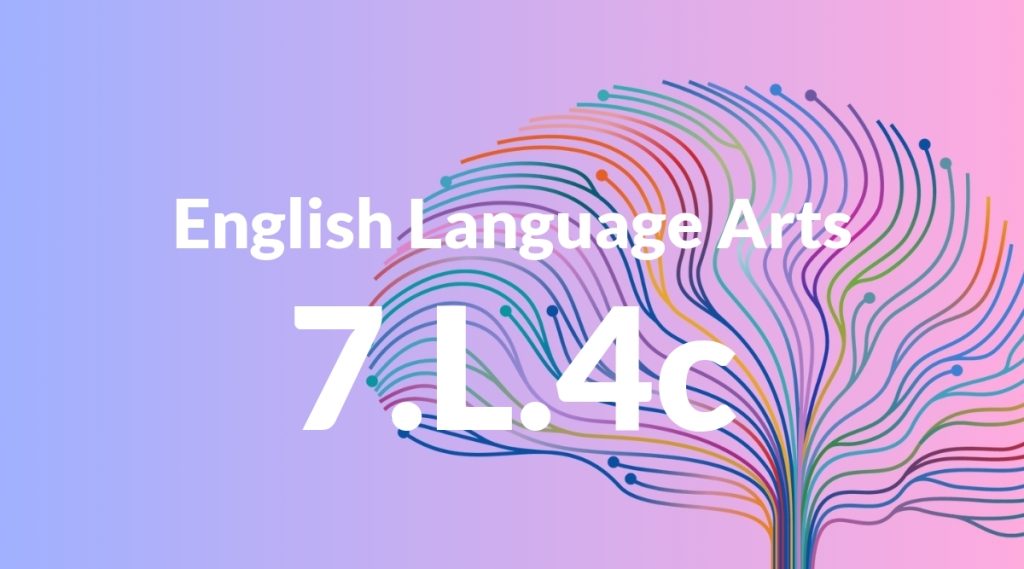Standard: 7.L.4c – Consult general and specialized reference materials (e.g., dictionaries, glossaries, thesauruses), both print and digital, to find the pronunciation of a word or determine or clarify its precise meaning or its part of speech.
Grade level: Grade 7
Subject: English Language Arts
Domain: Language
Teacher Overview
This standard emphasizes the importance of using various reference materials to enhance vocabulary and understanding of language. It is crucial for students to be adept at consulting both print and digital resources to find word meanings, pronunciations, and parts of speech. Mastering this skill will help students in their overall language development and academic success. Students should already know how to use a basic dictionary and have an understanding of word meanings and parts of speech.
After mastering this standard, students will be able to use advanced vocabulary and digital tools effectively, enhancing their overall language proficiency.
Common Misconception 1
A common misconception is that digital tools are the only reliable sources for word meanings. This is incorrect because print sources like dictionaries and thesauruses provide verified and often more detailed information.
Intervention 1
Introduce activities that require students to use both print and digital sources. Discuss the benefits and limitations of each type of resource.
Common Misconception 2
Another misconception is that one source is sufficient for understanding a word completely. This is not true because different sources can provide varied perspectives and additional information.
Intervention 2
Encourage students to consult multiple sources and compare the information they find. This practice will help them gain a more comprehensive understanding of words.
Prerequisite Knowledge
Students should be familiar with basic dictionary use and understand the concepts of word meanings and parts of speech.
Subsequent Knowledge
Students will develop advanced vocabulary skills and the ability to use digital tools for language learning.
Instructional Activities
- Dictionary scavenger hunt
- Thesaurus treasure map
- Online pronunciation quiz
- Parts of speech sorting game




